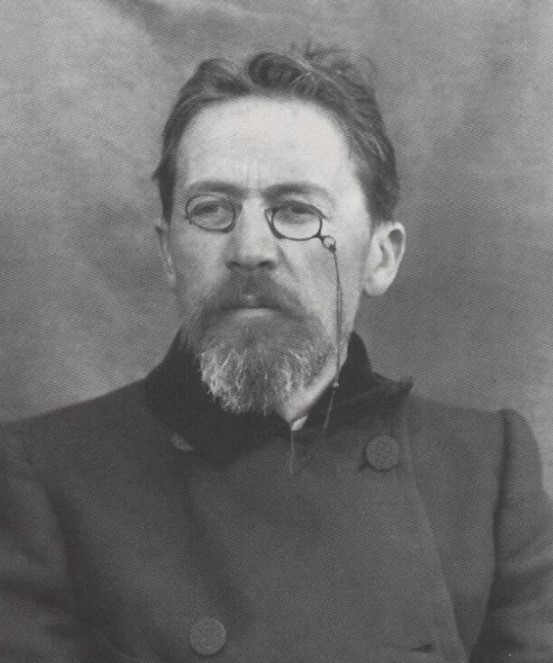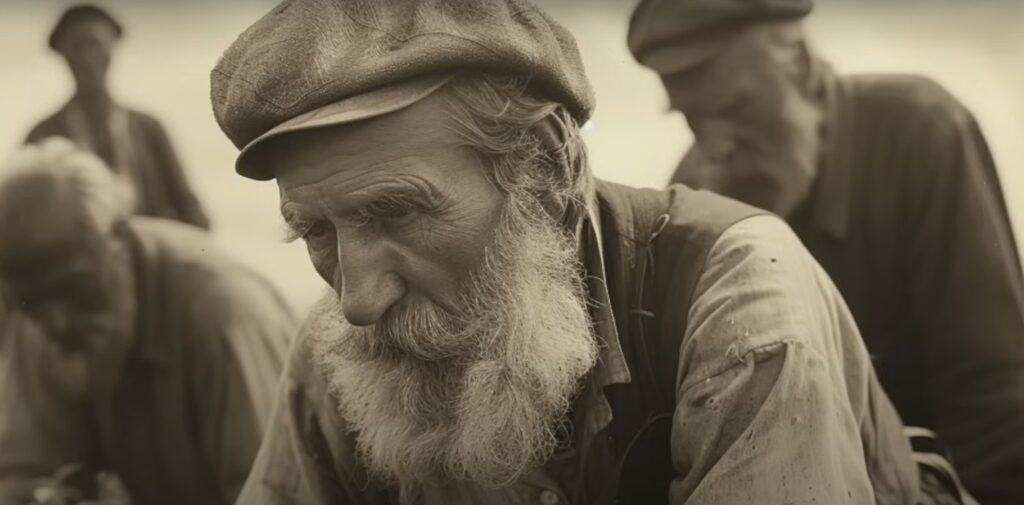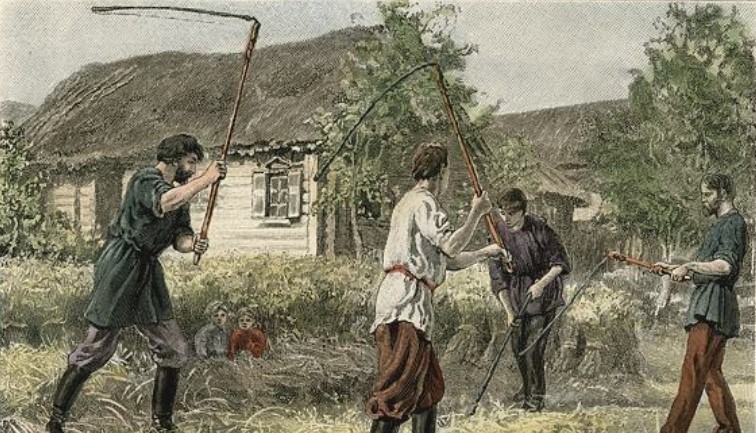By Andy Ford
If you want to read an explanation of why the Russian Revolution was necessay, read Peasants by Anton Chekhov. Professors and journalists lament the revolution, arguing that it cut off a path of peaceful capitalist development for Russia, that Russia was developing in the last half of the nineteenth century, after the Crimean War and the abolition of serfdom, and that the Revolution opened the door to the horrors of Stalinism.
The real explanation for the rise of Stalinism was given many times over by Leon Trotsky and later by Ted Grant, and their work can easily be found with a few clicks. But for an unsparing and realistic description of the life of the peasants in Tsarist Russia, one of the best sources is Anton Chekhov’s short novel from 1897.
It was so disturbingly accurate that the Tsarist censors at the time were appalled at the merciless depiction of poverty, despair and drunkenness, and they demanded changes. But Chekhov, a country doctor in Meilikhovo, 40 miles south of Moscow, refused. He had seen it all first hand, and with his gift for naturalistic writing and story-telling, the book soon became a huge success in both Russia and abroad.
The book begins with the return of Nikolay Tchikildyeev from Moscow, due to his illness. He was a son of the village, and together with his wife and two children, soon realises his mistake in coming back: “When he saw the greed with which the old father and the women ate the black bread, dipping it in water, he realized he had made a mistake in coming here, sick, penniless, and with a family too…”
Fire in the village
The village, with its shocking poverty and brutality is thus seen through the eyes of the visitors. “They heard a drunken cough, and a tall, black-bearded peasant wearing a winter cap came into the hut, and was the more terrible because his face could not be seen in the dim light of the little lamp. It was Kiryak. Going up to his wife, he swung his arm and punched her in the face with his fist. Stunned by the blow, she did not utter a sound, but sat down, and her nose instantly began bleeding.
“What a disgrace! What a disgrace!” muttered the old man, clambering up on to the stove. “Before visitors, too! It’s a sin!”
The old mother sat silent, bowed, lost in thought; Fyokla rocked the cradle.
Evidently conscious of inspiring fear, and pleased at doing so, Kiryak seized Marya by the arm, dragged her towards the door, and bellowed like an animal in order to seem still more terrible; but at that moment he suddenly caught sight of the visitors and stopped.”
Chekhov is also able to see the beauty in the Russian landscape, and this makes the degradation of the human lives lived in it all the more painful.
Crushing poverty, softened only by drunkenness
“Granny put Sasha by her kitchen-garden and told her to keep watch that the geese did not go in. It was a hot August day. The tavern keeper’s geese could make their way into the kitchen-garden by the backs of the huts, but now they were busily engaged picking up oats by the tavern, peacefully conversing together, and only the gander craned his head high as though trying to see whether the old woman were coming with her stick. The other geese might come up from below, but they were now grazing far away the other side of the river, stretched out in a long white garland about the meadow”.

But the poverty is crushing; on a holiday the family manages to procure a herring, but they have to make dinner out of its head only. The rest of the herring is secreted away – somewhere:
“As it was a holiday, they bought a herring at the tavern and made a soup of the herring’s head. At midday they all sat down to drink tea, and went on drinking it for a long time, till they were all perspiring; they looked positively swollen from the tea-drinking, and after it began sipping the broth from the herring’s head, all helping themselves out of one bowl. But the herring itself Granny had hidden.”
A turning point comes with a fire in the village, based on an actual fire that Chekhov had seen in Meilikhovo, “They heard desperate shouts from below. “The village is on fire!”
“Those who were sitting above looked round, and a terrible and extraordinary spectacle met their eyes. On the thatched roof of one of the end cottages stood a column of flame, seven feet high, which curled round and scattered sparks in all directions as though it were a fountain. And all at once the whole roof burst into bright flame, and the crackling of the fire was audible.”
Poverty created jealousy and bitterness
After the fire, the family are the poorer and end up behind with their taxes.
“The master arrived – that was what they called the police inspector. When he would come and what he was coming for had been known for the last week. There were only forty households in Zhukovo, but more than two thousand roubles of arrears of rates and taxes had accumulated.”
Instead of shared poverty bringing the peasants together, it only creates jealously and bitterness.
“Tea and sugar,” said Fyokla sarcastically. “The fine ladies!” she added, setting down the pails. “You have taken to the fashion of tea every day. You better look out that you don’t burst with your tea-drinking,” she went on, looking with hatred at Olga. “That’s how you have come by your fat mug, having a good time in Moscow, you lump of flesh!” She swung the yoke and hit Olga such a blow on the shoulder that the two sisters-in-law could only clasp their hands and say:
“Oh, holy Saints!”
Then Fyokla went down to the river to wash the clothes, swearing all the time so loudly that she could be heard in the hut.”
Their misery is only survivable with the temporary respite of drunkenness, which is of course followed by even worse misery, and by mid-winter they have run out of grain, and of credit at the tavern.
“On Elijah’s Day they drank, at the Assumption they drank, at the Ascension they drank. The Feast of the Intercession was the parish holiday for Zhukovo, and the peasants used to drink then for three days; they squandered on drink fifty roubles of money belonging to the Mir, and then collected more for vodka from all the households. On the first day of the feast the Tchikildyeevs killed a sheep and ate of it in the morning, at dinner-time, and in the evening; they ate it ravenously, and the children got up at night to eat more. Kiryak was fearfully drunk for three whole days; he drank up everything, even his boots and cap, and beat Marya so terribly that they had to pour water over her. And then they were all ashamed and sick.”
Checkhov’s righteous anger
The story finishes on a depressing note:
“In the course of the summer and the winter there had been hours and days when it seemed as though these people lived worse than the beasts, and to live with them was terrible; they were coarse, dishonest, filthy, and drunken; they did not live in harmony, but quarreled continually, because they distrusted and feared and did not respect one another.”
A depressing note indeed, but also we read Chekhov’s righteous anger that people should be forced to live like this.
“Yes, to live with them was terrible; but yet, they were human beings, they suffered and wept like human beings, and there was nothing in their lives for which one could not find excuse. Hard labour that made the whole body ache at night, the cruel winters, the scanty harvests, the overcrowding; and they had no help and none to whom they could look for help.”

The Russian Revolution put an end to that level of degradation and poverty, and though Stalinism was guilty of unimaginable crimes, the Revolution raised the Soviet Union to the level of a superpower in just 40 years, even with the massive economic destruction of the imperialist invasions and Civil War, and then the invasion and defeat of Nazism just 20 years later. It was forty years from the Revolution to the launch of Sputnik – a huge achievement.
Poverty today is comparable to Russia a hundred years ago
It is sobering to think that millions of people across the world still live in miserable poverty, exactly like Chekhov’s peasants. The World Bank has found that 712 million people, nearly all in sub-Saharan Africa, eke out an existence on less than $2.15 a day. That is about 10% of the world’s people. If we gauge poverty by the figure used in Europe, that is having to live on $30 a day or less, then 85% of the world population, 6.7 billion people, live in poverty.
And poverty is rising again now, after decreasing up until 2001. Most of the decrease was anyway due to economic growth in China, which lifted a billion people out of poverty, while in India there was little change. One study found that in India, there was less poverty in the thirteenth century than now, in the twenty-first.
“Socialism doesn’t work”, is the refrain of well-fed capitalist journalists and professors. But do these facts show a global system that is working? Only socialism can rescue the billions of impoverished victims of this capitalist system.
You can read Chekhov’s ‘Peasants’ in full here.



